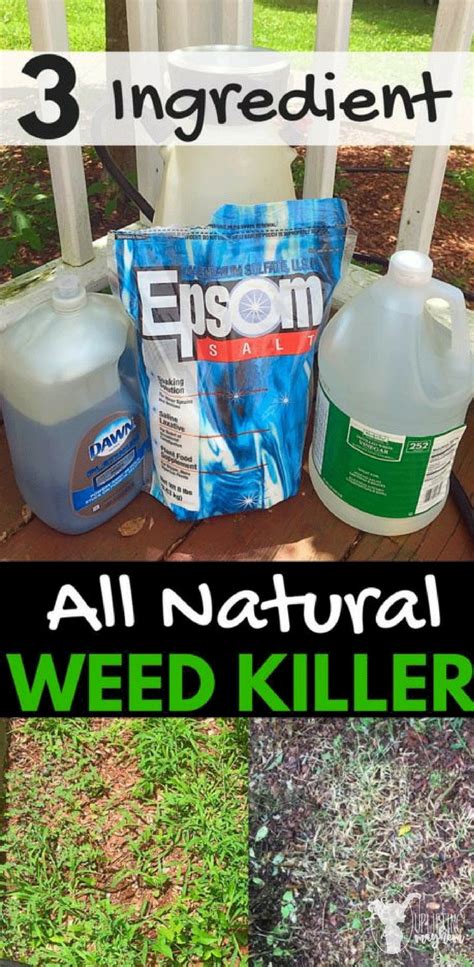Recipe for Natural Weed Killer: Banishing Unwanted Plants Organically
Tired of battling weeds with harsh chemicals? This guide provides effective recipes for natural weed killers, helping you reclaim your garden organically and safely. We'll explore several DIY solutions, emphasizing environmentally friendly approaches that are safe for your family, pets, and the planet.
Why Choose Natural Weed Killers?
Commercial weed killers often contain harmful chemicals that can leach into the soil, contaminate groundwater, and harm beneficial insects and wildlife. Natural alternatives, on the other hand, offer a safer and more sustainable way to manage weeds while promoting a healthy ecosystem. These methods are generally less expensive and require ingredients readily available at home or your local store.
Effective Natural Weed Killer Recipes:
Here are a few recipes for homemade weed killers, each with varying strengths and applications:
1. Boiling Water Method: The Simple Solution
This is the easiest and most readily available method, perfect for spot-treating weeds in cracks in pavement, driveways, or between paving stones.
- Ingredients: Boiling water
- Method: Carefully pour boiling water directly onto the weeds, ensuring you saturate the base of the plant. This method works best on smaller weeds and may require repeat applications for larger, more established plants.
- Pros: Simple, fast, readily available ingredients.
- Cons: Not effective on larger weeds or those with deep root systems. Requires repeated applications.
2. Vinegar Weed Killer: A Potent Option
Vinegar, particularly white vinegar with a high acetic acid content (5% or higher), is a natural herbicide.
- Ingredients: White vinegar (5% acetic acid or higher), optional: dish soap (a few drops to help the vinegar stick to the leaves)
- Method: Fill a spray bottle with undiluted white vinegar. Add a few drops of dish soap (optional) to improve adherence. Spray directly onto the weeds, ensuring complete coverage of leaves and stems. Reapply as needed.
- Pros: Relatively effective on a range of weeds.
- Cons: Can also damage desirable plants if it comes into contact with them. Avoid spraying on windy days.
3. Saltwater Weed Killer: For Stubborn Weeds (Use with Caution!)
Saltwater is effective, but use this method sparingly and with caution as it can alter soil salinity, potentially harming other plants and the environment. Only use this on areas where you definitely don't want anything else to grow.
- Ingredients: Water, table salt.
- Method: Mix a high concentration of salt into water (e.g., 1 cup salt per gallon of water). Pour directly onto the weeds, ensuring the solution reaches the base of the plant.
- Pros: Effective on stubborn weeds.
- Cons: Can harm soil health and nearby plants. Not suitable for garden beds or areas where you intend to plant anything in the future.
4. Baking Soda Weed Killer: A Gentle Approach
Baking soda is a gentler alternative for delicate areas. It disrupts the weed's cellular processes.
- Ingredients: Baking soda, water.
- Method: Mix 2 tablespoons of baking soda per gallon of water. Spray directly onto the weeds. You may need to repeat this application for optimal effectiveness.
- Pros: Gentler on the environment than other methods.
- Cons: Less effective than vinegar or saltwater; may require multiple applications.
Tips for Effective Weed Control:
- Timing is key: Apply natural weed killers on a sunny day when the weeds are actively growing.
- Targeted application: Avoid spraying desirable plants.
- Persistence is important: Many natural weed killers require multiple applications to be fully effective.
- Preventative measures: Mulching, regular weeding, and proper soil care can greatly reduce weed growth.
By employing these natural weed killer recipes and preventative measures, you can maintain a healthy, weed-free garden without resorting to harmful chemicals. Remember to always prioritize safety and environmental responsibility when choosing your weed control methods.

